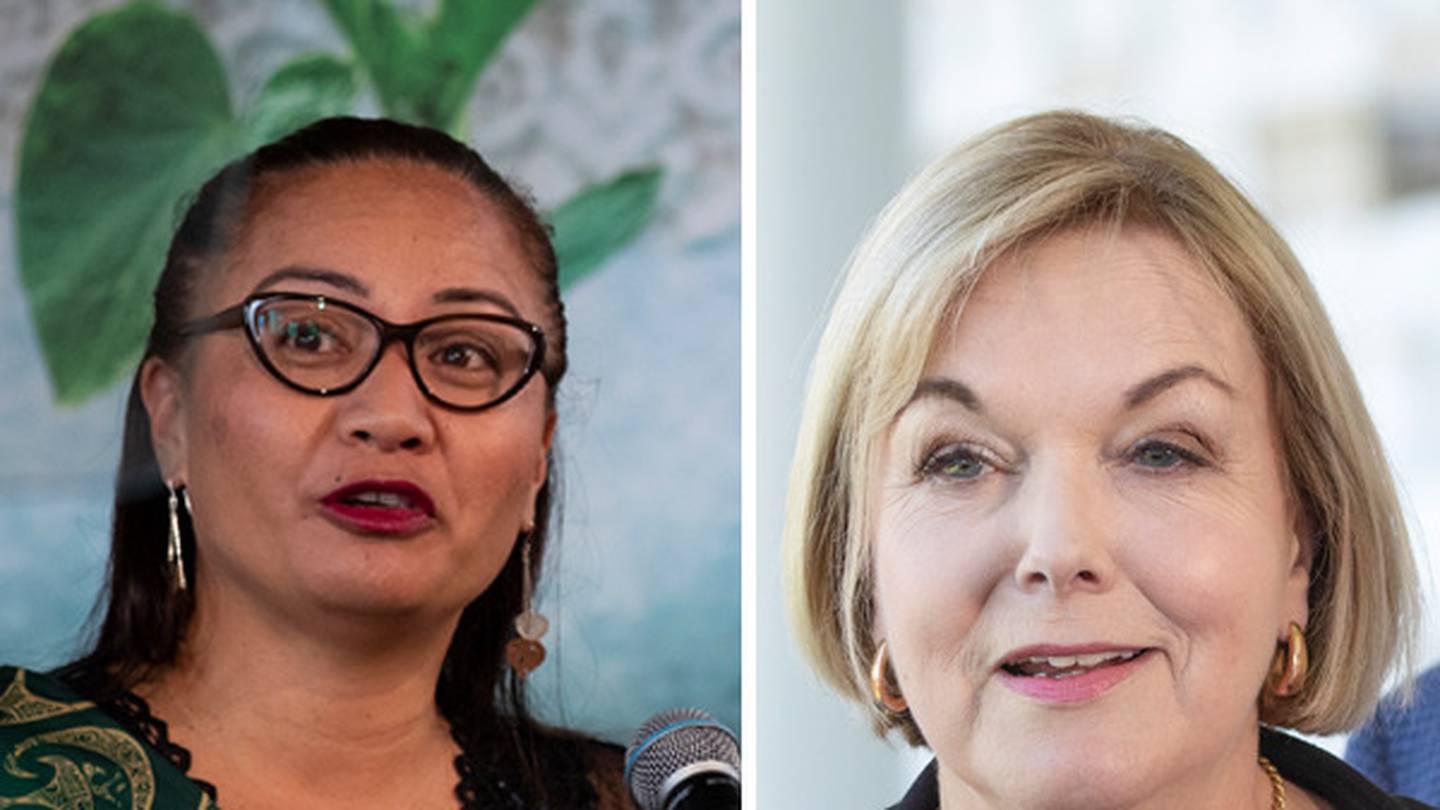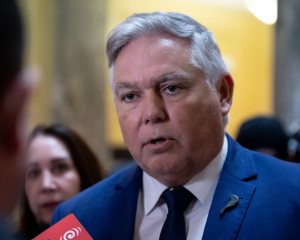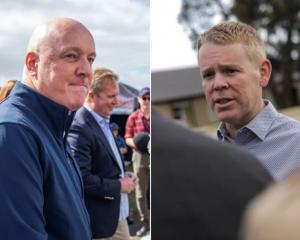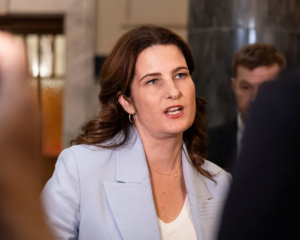
The stern comments come after Collins spoke out about not being afforded the opportunity to speak during the politicians' pōwhiri at Waitangi.
The politicians were welcomed on to Te Whare Runanga on Thursday, but Ardern was the only woman allowed a speaking slot.
That issue was gently raised by National's speaker, deputy Shane Reti, during his speech in te reo Māori. He asked them to please reconsider it, saying it saddened them that the women could not speak.
In response, Ngāpuhi elder Waihoroi Shortland promised it would be allowed to happen next year.
Collins said the decision not to let her speak had disappointed her.
She said it was important women growing into leadership roles knew they had the same rights as men in such situations.
"It isn't only about me or politicians, it's about all women – wahine toa – who wish to be able to have their say."
Davidson - of Ngāpuhi, Ngāti Porou and Te Rarawa - sat alongside Collins during the pōwhiri, and was also denied the opportunity to speak.
However during a media stand-up in Waitangi on Friday she said that decision was up to the hau kāinga, local people of the marae, and not for visiting politicians.
Collins' comments also ignored the work of wahine Māori to further the discussion around tikanga, Davidson said.
"[Collins] does not have the cultural expertise to be able to acknowledge wahine Māori need to lead the discussion about what our roles are and where we put our voices.
"She does not have the cultural expertise to understand the first voice and only voice that can allow a pōwhiri to happen is the kāranga [led by women], and she undermines the meaning of the kāranga by coming from a Pākehā woman's perspective.
"In saying that Māori women have long been leading and asking for us to review our tikanga in a way that upholds the genesis of the mana of wahine."
Ardern – who has spoken there since she became Prime Minister – said she would support a move to allow other women leaders to speak.
"I was heartened to hear that call being made that next year it would be different. It would be fantastic to allow all leaders to speak, just as I have that privilege."
It is far from the first time there have been debates over women speaking at Waitangi.
In 1998, then Labour opposition leader Helen Clark was reduced to tears after matriarch Titewhai Harawira blocked her from speaking on Te Tii Marae.
"You let Helen Clark speak but not Māori women," Harawira said at the time.
Māori studies academic and political commentator Dr Rawiri Taonui has written extensively on the topic, and in an article for The Spinoff said the Pākehā assumption that women sitting behind men at pōwhiri was discriminatory and sexist was wrong - as were decisions about who spoke.
"For Māori, the roles are equal: women in front for the karanga, men in front for whaikōrero, side-by-side for waiata."
However, decisions about who could speak, particularly when politics was involved, has long been challenged by wahine Māori, he said.










